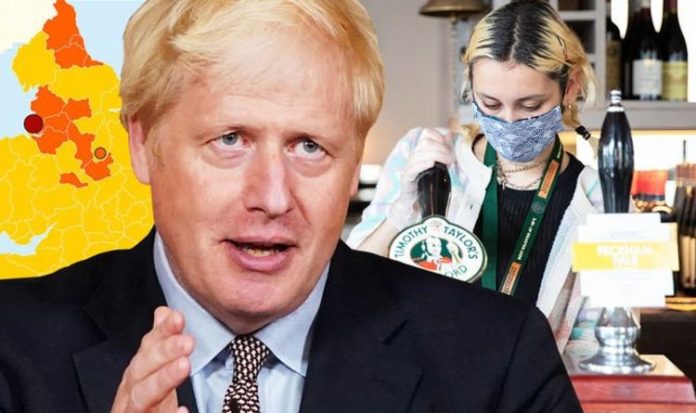The new stricter rules that will enforce local lockdowns to avoid the further spread of COVID-19, were announced by the Prime Minister yesterday. The three-tier system has come into effect today across England. Some have opposed the new measures, which in the worst category will enforce travel restrictions and prohibit household mixing indoors and outdoors. Tier-three will also lead to the temporary closure of all pubs and bars unless they can operate as restaurants. Some fear the move could lead to further damage to the hospitality industry and cause businesses to shut down. But historic accounts suggest similar measures have been enforced in the past and were overcome through crafty means.
Towards the end of the 19th Century, New York bars sneakily overcame a law that aimed to prohibit establishments from serving alcohol on Sundays.
The Raines Law was pushed through by Christian lobbyists who wanted to end drinking on the Sabbath and reduce displays of public drunkenness.
Last year, Atlas Obscura described the act as “a combination of good intentions, unstated prejudices and unforeseen consequences”.
Among the unexpected outcomes in backlash to the 1896 law was the creation of the “Raines sandwich”.
Restrictions at the time demanded that bars could only serve alcohol if it was accompanied by a meal.
In a bid to cut costs, they initially tried to serve minimal and inexpensive food items like a single cracker until law enforcement declared: “A cracker isn’t a complete meal in itself, but a sandwich is.”
This clarification led to a number of bars using their creativity to overcome the obstacle before them.
It increased the annual liquor license to three-times its original cost and tenfold for ‘beer-only taverns’.
It raised the drinking age from 16 to 18 years old and ensured no saloon could be open within 200ft of a school or church.
The law also demanded that bars kept their curtains open at all times – as a way to prevent police officers from turning a blind eye.
While the restrictions curbed drinking for some, the battle between the law and the hospitality industry continued well into the 20th Century.
By 1919, the Anti-Saloon League pressured the government into enforcing Prohibition across the whole of the US.
But even then, through the introduction of speakeasies, those determined to find a way to bypass the rules were able to – for a price.







